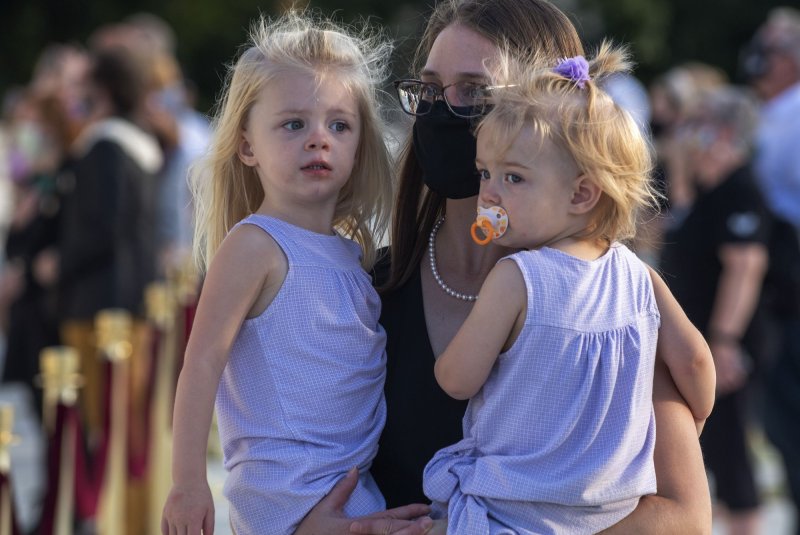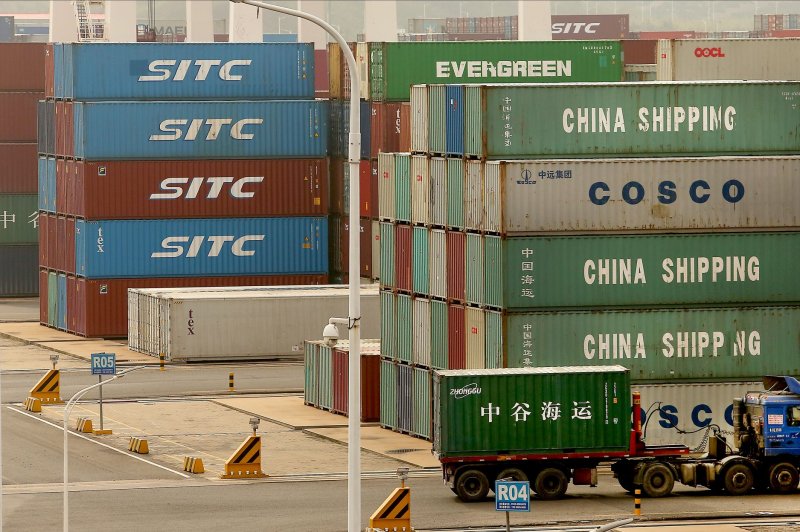
Women worldwide are doing more unpaid labor and risk falling into poverty due to the COVID-19 pandemic, a study released by the United Nations said.
File Photo by Pat Benic/UPI | License Photo
Nov. 26 (UPI) -- Women are doing more unpaid work during the COVID-19 pandemic and have a greater danger of slipping into poverty, a report released Thursday from the United Nations shows.
The report, "Whose Time to Care?" from U.N. Women, surveyed data in 38 countries and found that both women and men have increased their unpaid workloads, but women are "still doing the lion's share."
More women than men were leaving the workforce to take on care burdens for children and other family members, the research gathered by telephone and online survey methods showed.
"Greater numbers of women -- who are already less likely to be in the workforce -- have left the labor market altogether," the new report said. The difference is highest in Latin America, a region hard hit by the economic fallout of COVID-19, with 83 million women outside the labor force (up from 60 million before COVID-19).
Since the pandemic began, 56% of women and 51% of men have increased the time they spend on unpaid care work, the report says, but the difference expands when the study looked at caring for children.
Research in July by Ipsos for U.N. Women in 16 countries showed that before COVID-19, women spent an average of 26 hours per week on child care, but that has increased to 31 hours since the pandemic began. For men, the reported number of hours increased to 24 per week from 20 per week in pre-COVID-19 times.
Most alarming, the report says is that research published in September by U.N. Women shows that the economic losses related to the pandemic could push 13% of women and children into poverty.
"Next year 435 million women and girls will be living on less than $1.90 a day worldwide -- including 47 million specifically impoverished by COVID-19," the report said.
The report calls on governments to adopt concrete policy actions, including investing in the so-called "care economy," which suffers from underpayment and exploitation. U.N. Women encourages governments to support paid family and sick leave and organize "cash for care" programs that subsidize parents who take off work to care for children when schools are closed due to COVID-19.
"It is high time that this work be recognized, reduced, redistributed and, ultimately, supported," the report said.
Nov. 26 (UPI) -- Women are doing more unpaid work during the COVID-19 pandemic and have a greater danger of slipping into poverty, a report released Thursday from the United Nations shows.
The report, "Whose Time to Care?" from U.N. Women, surveyed data in 38 countries and found that both women and men have increased their unpaid workloads, but women are "still doing the lion's share."
More women than men were leaving the workforce to take on care burdens for children and other family members, the research gathered by telephone and online survey methods showed.
"Greater numbers of women -- who are already less likely to be in the workforce -- have left the labor market altogether," the new report said. The difference is highest in Latin America, a region hard hit by the economic fallout of COVID-19, with 83 million women outside the labor force (up from 60 million before COVID-19).
Since the pandemic began, 56% of women and 51% of men have increased the time they spend on unpaid care work, the report says, but the difference expands when the study looked at caring for children.
Research in July by Ipsos for U.N. Women in 16 countries showed that before COVID-19, women spent an average of 26 hours per week on child care, but that has increased to 31 hours since the pandemic began. For men, the reported number of hours increased to 24 per week from 20 per week in pre-COVID-19 times.
Most alarming, the report says is that research published in September by U.N. Women shows that the economic losses related to the pandemic could push 13% of women and children into poverty.
"Next year 435 million women and girls will be living on less than $1.90 a day worldwide -- including 47 million specifically impoverished by COVID-19," the report said.
The report calls on governments to adopt concrete policy actions, including investing in the so-called "care economy," which suffers from underpayment and exploitation. U.N. Women encourages governments to support paid family and sick leave and organize "cash for care" programs that subsidize parents who take off work to care for children when schools are closed due to COVID-19.
"It is high time that this work be recognized, reduced, redistributed and, ultimately, supported," the report said.













